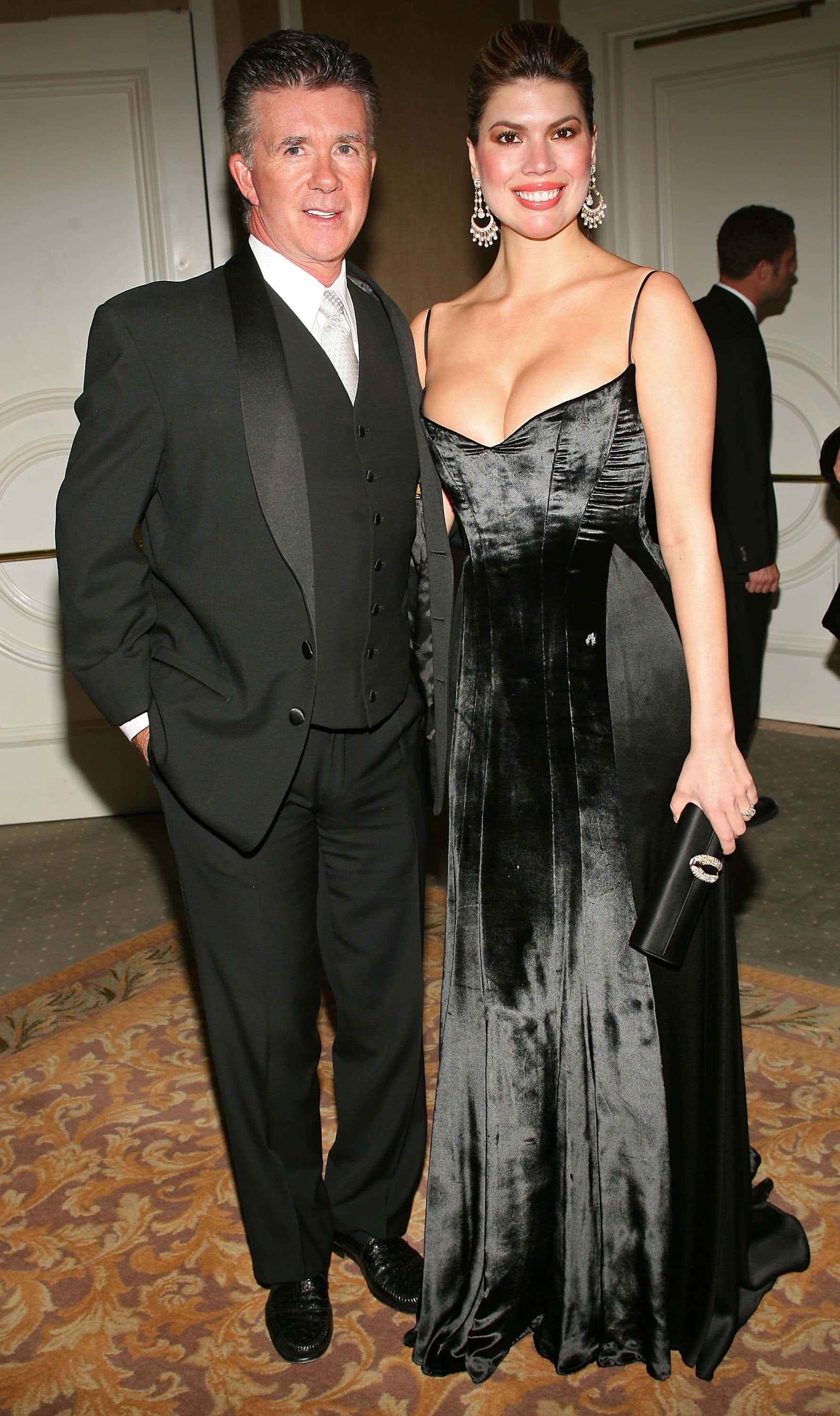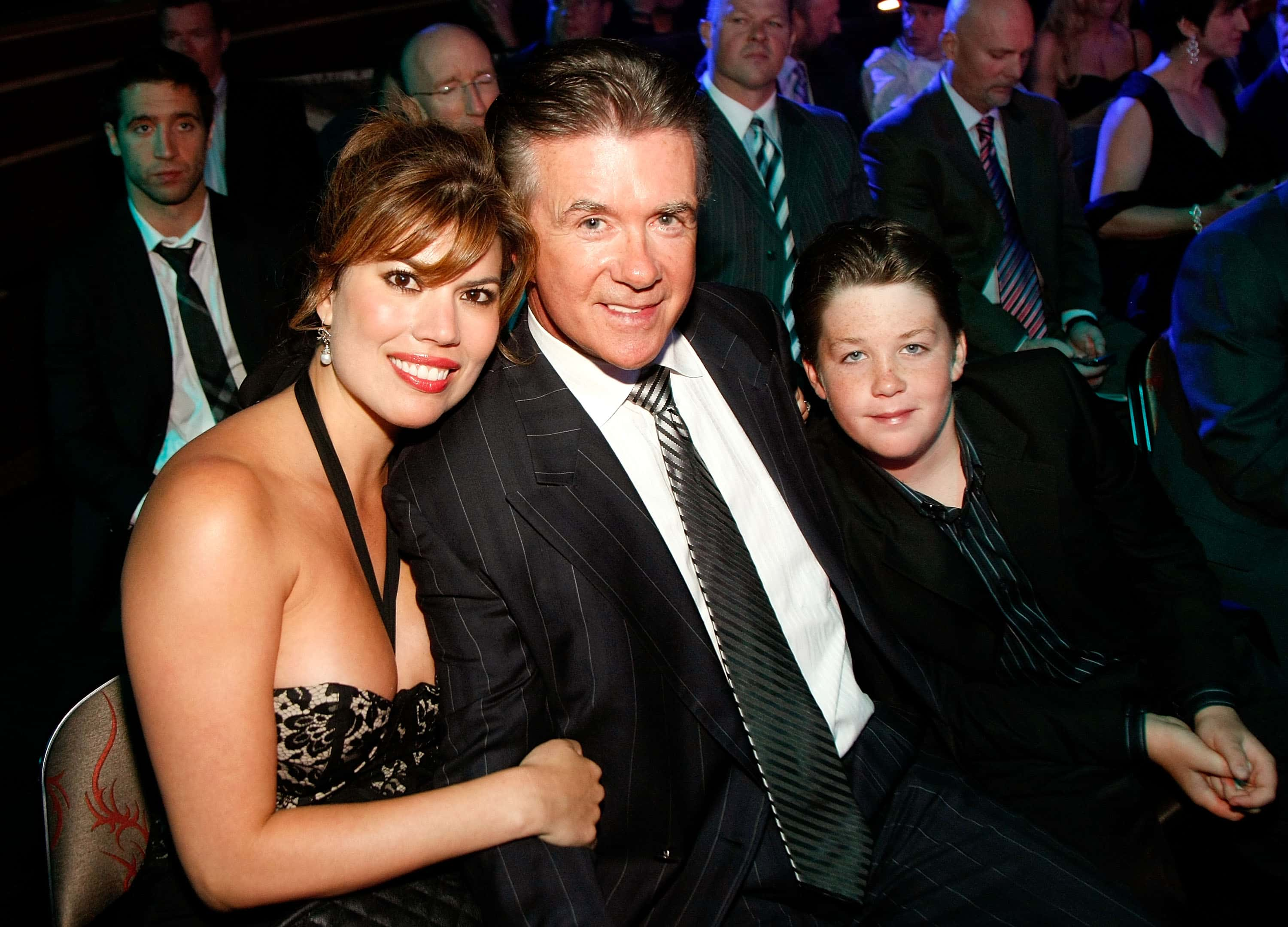'Growing Pains' star Alan Thicke was one of the fittest actors at 69. So what really killed him?

Alan Thicke, who became a household name after his role in the 1980s sitcom 'Growing Pains', died on December 13, 2016, after suffering a ruptured aorta artery. The beloved Canadian star was playing ice hockey with his son Carter when he suffered a heart attack. He was 69 at the time.
The official cause of death was found to be a ruptured aorta and a standard Type A aortic dissection, Thicke's death certificate stated, adding that he died just minutes after the artery ruptured.
Tanya, Thicke's doting wife, described him as a “beloved husband, soul mate and the patriarch of our family.”
“It is with gut-wrenching sadness and unbelievable grief that I thank everyone from the bottom of my heart for the outpouring of love and support during this unimaginable time," she said at the time of his death.

Reports at the time noted how Carter and Thicke were playing hockey at their usual rink in Burbank on the fateful day. At around 11 am, Thicke complained about chest pains and vomited about half an hour later. An ambulance picked him up and rushed him to Providence St. Joseph's Medical Center, where he was tragically pronounced dead.
And just like that, one of the fittest and most dynamic entertainers in the industry was gone — leaving millions of his fans in shock and disbelief. As paramedics rolled him out during his final moments at the Pickwick Ice Rink, Thicke reportedly joked to Carter that he should "take a picture" of him in the process.
“He had Carter take a picture of him, and said, ‘Make sure you get the rink in the background’ as they were taking him out of here,” Darin Mathewson, the vice president of Pickwick Gardens who made the 911 call, told Entertainment Tonight at the time. “When he went by us, he gave us the thumbs up, like, ‘I’m doing good guys, I’m good.'”
The 'Not Quite Human' star was known to be athletic all his life and had been playing ice hockey from a young age. Having always been a powerhouse of talent and brimming with life, it was difficult for Thicke's fans to digest that a heart attack would kill someone purportedly in the pink of his health.
'Autopsy: The Last Hours of Alan Thicke' revisits his mysterious death from the perspective of Dr Michael Hunter, a veteran medical examiner in California. Breaking down the actor's life and career right from a knee injury he suffered at an early age, Dr Hunter builds a conclusive case to determine what really caused the Canadian legend's demise.

As previously noted, Thicke's death certificate listed a Type A dissection to the aorta as one of the causes of death. A dissection, according to Dr Hunter, is a tear in the wall of the aorta artery that results in blood ending in two channels instead of one. Furthermore, a Type A dissection means the tear was in the part of the aorta closest to the heart.
Such types of dissections are largely fatal if there isn't immediate open cardiac surgery, per the doctor, who also said it is excruciatingly painful for the victim in most cases.
But why do aortic tears occur in the first place? There is a multitude of possible reasons — unhealthy lifestyles, food consumption, calorie intake, cholesterol levels, or even an aortic aneurysm, which causes the artery to become abnormally enlarged.
It appears that while Thicke was publically perceived as an unbridled force of nature in his 60s, the reality behind the scenes was not the most ideal picture.
According to close friends and family, Thicke would consume huge amounts of calories owing to his athletic lifestyle, often ingesting copious amounts of salt and dollops butter on a whim. This would, in turn, result in dangerous levels of bad cholesterol.
What's more? Thicke had another vice — he was smoking a lot of cigarettes, often to cope with the stress of his physically and mentally draining schedule.
The combination of his fast-paced lifestyle, his obsession with ice hockey despite getting on in years (he aspired to join the NHL in his 60s), as well as his unhealthy dietary choices eventually led to the weakening of his arteries. Furthermore, cigarette smoking over long periods of time can cause thinning of aortic walls — often to life-threatening levels as in this case.
On the morning of Thicke's tragic passing, the Canadian Walk of Famer was in high spirits. There was nothing wrong with him.
The sudden nature of his death should serve as a reminder that leading a healthy lifestyle is highly imperative, considering the occurrence of aneurysms or thinning of aortic walls are a ticking time bomb with almost no short term symptoms whatsoever.
Nonetheless, Thicke's long and storied career meant he would live on in pop culture for eons to come — especially with a timeless legacy spanning decades of critically acclaimed performances.

In 1988, Thicke won a Golden Globe nomination for his role as Dr Jason Seaver in 'Growing Pains', which ran from 1985 to 1992. He also appeared in two movie sequels of the show. Among his other accolades were a bunch of Emmy nominations for stellar performances in 'The Barry Manilow Special' (1977) and 'America 2-Night' (1978).
Thicke is survived by his three sons Robin Thicke, Brennan Thicke, Carter Thicke and his wife Tanya. In an interview with The Los Angeles Times shortly after the tragedy, Robin called his father “the greatest man I ever met.”
In a heartwarming moment, Robin revealed that one of the last things his father did was congratulate Carter on a great shot on the ice. “The good thing was that he was beloved and he had closure,” Robin told the paper. “I saw him a few days ago and told him how much I loved and respected him.”
'Autopsy: The Last Hours of Alan Thicke' premieres Sunday, February 23 at 8 pm ET/5 pm PT on REELZ.










